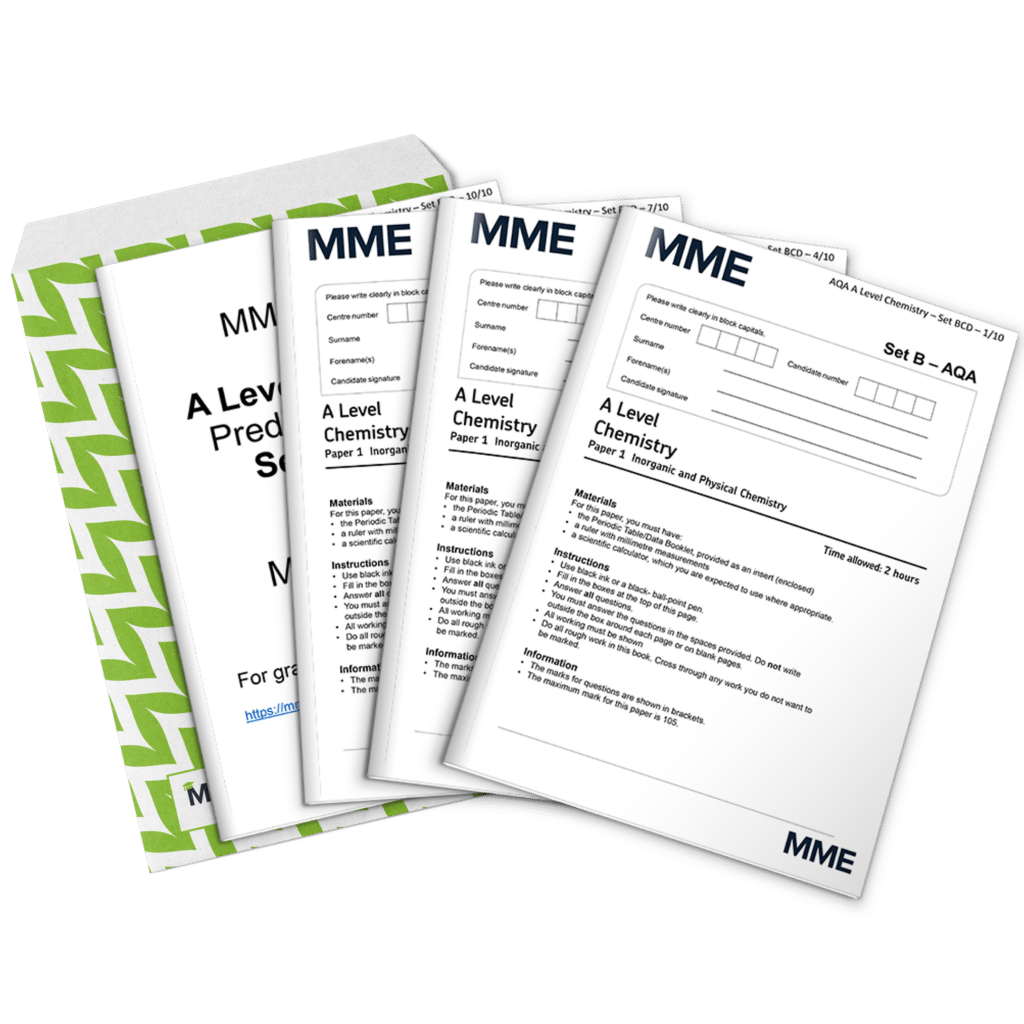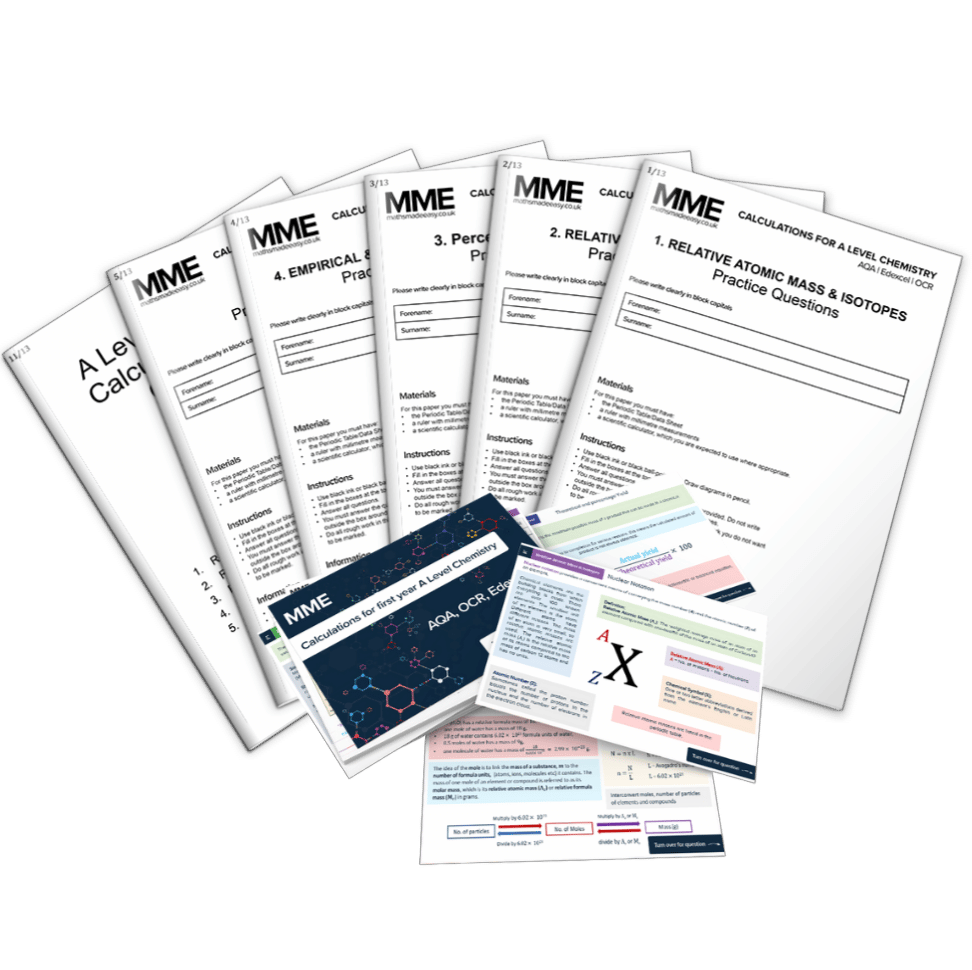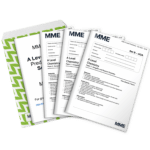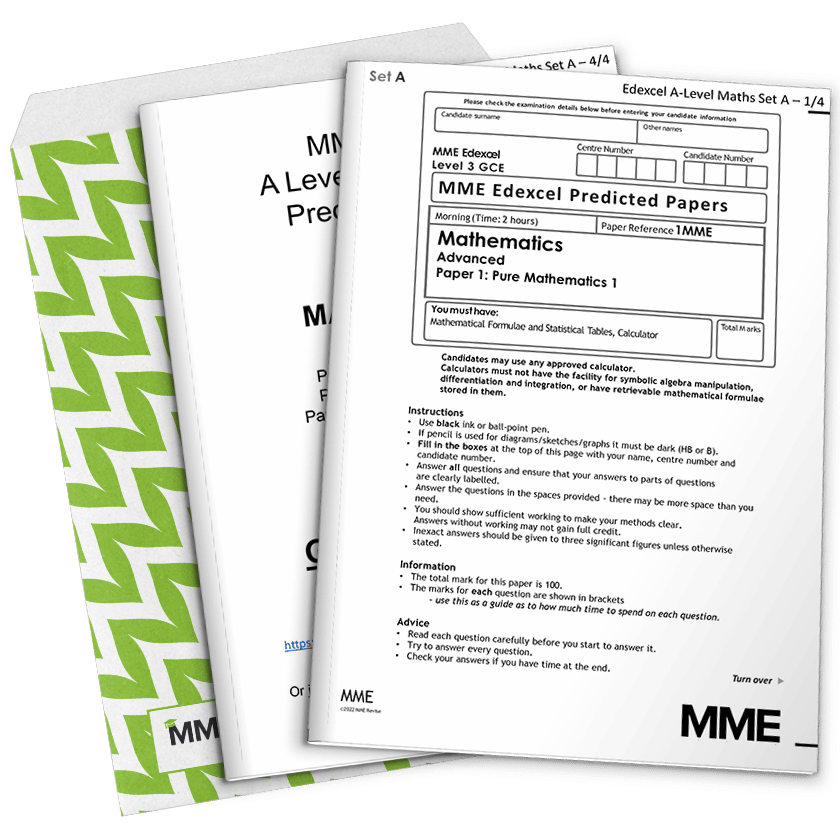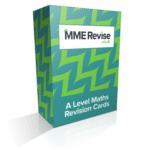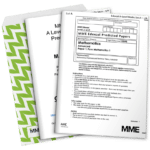A Level Chemistry OCR Past Papers
AS and A Level Chemistry A (New Specification)
OCR A-Level Past Papers June 2022
OCR A-Level Past Papers November 2021
OCR A-Level Past Papers November 2020
OCR A-Level Past Papers June 2019
OCR A-Level Past Papers June 2018
OCR A-Level Past Papers June 2017
OCR A-Level Past Papers June 2016
Specimen Papers
AS and A Level Chemistry A (Old Specification)
OCR A-Level Past Papers June 2016
OCR A-Level Past Papers June 2015
OCR A-Level Past Papers June 2014
OCR A-Level Past Papers June 2013
OCR A-Level Past Papers June 2012
OCR A-Level Past Papers January 2012
OCR A-Level Past Papers June 2011
OCR A-Level Past Papers January 2011
OCR A-Level Past Papers June 2010
AS and A Level Chemistry B (Salters) (New Specification)
OCR A-Level Past Papers June 2022
OCR A-Level Past Papers November 2021
OCR A-Level Past Papers November 2020
OCR A-Level Past Papers June 2019
OCR A-Level Past Papers June 2018
OCR A-Level Past Papers June 2017
OCR A-Level Past Papers June 2016
Specimen Paper
AS and A Level Chemistry B (Salters) (Old Specification)
OCR A-Level Past Papers June 2016
OCR A-Level Past Papers June 2015
OCR A-Level Past Papers June 2014
OCR A-Level Past Papers June 2013
OCR A-Level Past Papers January 2013
OCR A-Level Past Papers June 2012
OCR A-Level Past Papers January 2012
OCR A-Level Past Papers June 2011
OCR A-Level Past Papers January 2011
OCR A-Level Past Papers June 2010
OCR A Level Chemistry A Specification
The OCR A Level Chemistry specification is demanding, and the examination series corresponds to this with a series of long and short answer questions with analysis skills required and the ability to apply the knowledge covered.
The OCR Chemistry content is in six modules:
Module 1 – Development of practical skills in chemistry
Module 2 – Foundations in chemistry
Module 3 – Periodic table and energy
Module 4 – Core organic chemistry
Module 5 – Physical chemistry and transition elements
Module 6 – Organic chemistry and analysis
Exam Structure
Paper 1: Periodic table, elements and physical chemistry.
- 100 marks
- 2 hour 15 minutes
- 37% of the exam
- Assesses content from modules 1, 2, 3 and 5
Paper 2: Synthesis and analytical techniques.
- 100 marks
- 2 hour 15 minutes
- 37% of the exam
- Assesses content from modules 1, 2, 4 and 6
Paper 3: Unified chemistry (03)
- 70 marks
- 1 hour 30 minutes
- 26% of the exam
- Assesses content from all modules (1 to 6)
Students must complete all components (01, 02, 03, and 04) to be awarded the OCR A Level in Chemistry A. This also includes the required practicals which can be assessed in any of the exams.
Content Summary
The six chemistry modules are each divided into key topics:
Module 1: Development of practical skills in chemistry
- Practical skills assessed in a written examination
- Practical skills assessed in the practical endorsement
Module 2: Foundations in chemistry
- Atoms, compounds, molecules and equations
- Amount of substance
- Acid–base and redox reactions
- Electrons, bonding and structure
Module 3: Periodic table and energy
- The periodic table and periodicity
- Group 2 and the halogens
- Qualitative analysis
- Enthalpy changes
- Reaction rates and equilibrium (qualitative)
Module 4: Core organic chemistry
- Basic concepts
- Hydrocarbons
- Alcohols and haloalkanes
- Organic synthesis
- Analytical techniques (IR and MS)
Module 5: Physical chemistry and transition elements
- Reaction rates and equilibrium (quantitative)
- pH and buffers
- Enthalpy, entropy and free energy
- Redox and electrode potentials
- Transition elements
Module 6: Organic chemistry and analysis
- Aromatic compounds
- Carbonyl compounds
- Carboxylic acids and esters
- Nitrogen compounds
- Polymers
- Organic synthesis
- Chromatography and spectroscopy (NMR)
OCR B Level Chemistry Specification
OCR provide two different A level Chemistry specifications, A and B so you must ensure when revising and using the past papers that you cover the content from the correct specification.
Exam Structure
Paper 1: Fundamentals of chemistry
- 110 MARKS
- 2 hour 15 minutes
- 41% of the A level
Paper 2: Scientific literacy in chemistry
- 100 marks
- 2 hour 15 minutes
- 37% of the qualification
Paper 3: Practical skills in chemistry
- 60 marks
- 1 hour 30 mins
- 22% of the qualification.
Students must complete all components (01, 02, 03, and 04) to be awarded the OCR A Level in Chemistry B (Salters) including the required practicals that can be examined in any of the three papers.
Content Summary
There are three sections.
- Development of practical skills in chemistry
- Practical skills assessed in a written examination
- Practical skills assessed in the practical endorsement




